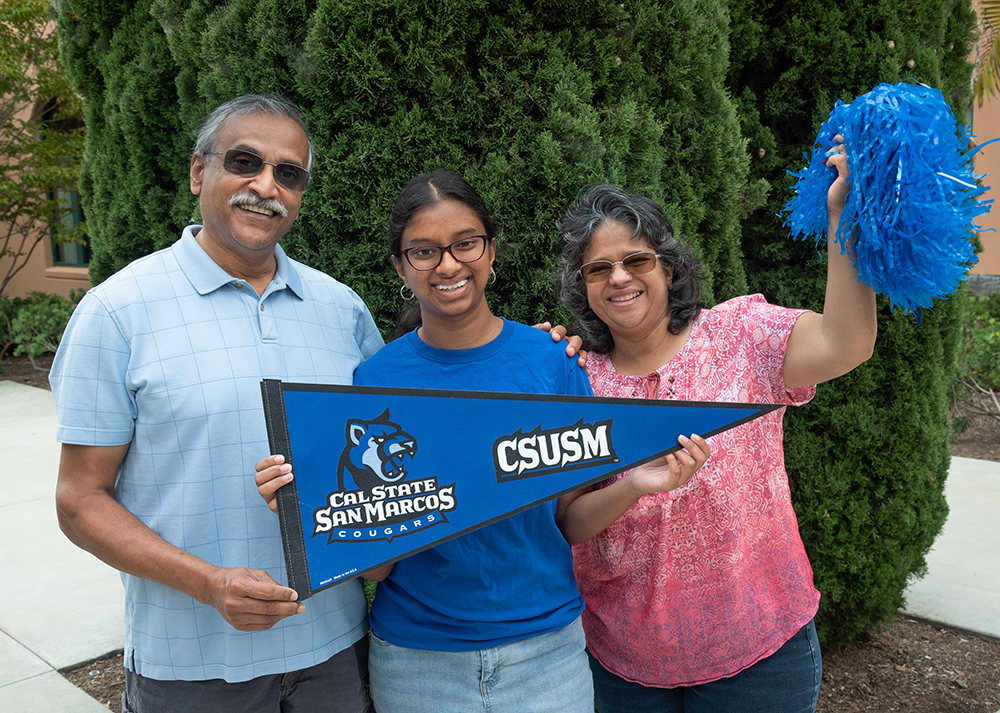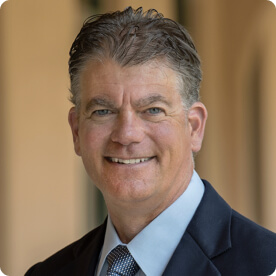Happy New Year from the San Diego Foundation (SDF) team!
We appreciated the opportunity to work with so many of you at the end of 2023. Your work with philanthropic clients is inspiring.
In this issue, we’re covering important topics for you and your clients as you kick off a new year.
- First, we’re offering suggestions for how to spot potential charitable planning opportunities within your client base. Clients who gave large year-end gifts, families whose grown children are spread out geographically, and clients whose portfolios jumped in value are examples of clients who may benefit from proactive charitable planning.
- Second, we’ve continued to see an uptick in families interested in diversifying their charitable giving portfolios by adding unrestricted giving components to their work with SDF. From gifts to SDF’s operating fund to gifts to support our strategic initiatives, the options are plenty. We look forward to exploring the possibilities with your philanthropic clients.
- Third, our team constantly looks for trends and developments in the tax laws governing charitable giving. We’re sharing five of the hottest topics that could impact how you work with your philanthropic clients.
As always, the SDF team is just a phone call or an email away to help you and your clients build charitable plans for 2024 to support the charities that are uplifting our communities. Thank you for the opportunity to work together.
Big Gifts, Bullish Portfolios, and Kids Who Move Away
If you’re not talking about charitable giving with your high net-worth clients, 2024 is the year to start doing it. Recent studies show that 85.1% of affluent households give to charity. Certainly, many of your clients are among them.
Take a few minutes this month to scan your client list for three common scenarios and related opportunities for charitable giving solutions.
- Clients who made significant charitable gifts at year-end.
You’re probably aware of a few clients who increased their charitable giving at the end of 2023. Perhaps you worked with a client to establish a donor-advised (DAF) or other type of charitable fund at SDF. Alternatively, you helped a client structure a Qualified Charitable Distribution (QCD) to a field-of-interest or designated fund at the foundation. Now that the dust has settled on year-end planning activities, return to these clients to learn more about their overall philanthropic plans. You may discover that a client would like to work with you to update their estate plan to include a bequest to their fund at SDF, set up a charitable remainder trust with highly appreciated stock, or proactively plan their gifts for 2024 to jump on tax strategies. - Clients whose stock portfolios have rallied. 2023 brought good news and record highs for the stock market. As always (and perhaps especially now), giving appreciated, publicly-traded stock to charitable organizations is a highly effective tax strategy. This is because capital gains tax is avoided when your client transfers long-term, marketable securities to a fund at SDF or other public charity. The client is typically eligible for an income tax deduction at the fair market value of the securities. When the charity sells the securities, the charity does not pay capital gains tax. This is a win-win for your client and the charity. Scan your list for clients holding long-term stock positions that have appreciated substantially since they bought them, especially with the market’s latest rally.
- Clients whose children have moved away. Children of affluent parents tend to move away. This means many clients may seek ways to stay in close communication with their children. Remember that while SDF can help your clients maximize the impact and tax benefits of their local giving, our tools are also very geographically flexible. For example, your clients can use their DAF to support 501(c)(3) organizations nationwide, including in communities where their grown children live. When you demonstrate your interest in your clients’ charitable giving priorities, you are strengthening not only your client relationships but also your clients’ relationships with their children.
Unrestricted Giving, the Trust Factor, and Why It Matters to Your Clients
The gifts Americans give to charity every year provide critical support to organizations helping sustain the quality of life in our communities. Philanthropy equates to 2% of GDP–a little more than the home healthcare services sector! And trust is growing as a must-have prerequisite before your clients decide to give to an organization, increasing from 63.9% to 69.9% between December 2021 and December 2022.
With trust in charitable organizations driving so many giving decisions, you and your clients must know SDF’s role and commitment to stewardship.
Every day, our team works with members of our board of directors, civic leaders and nonprofit organizations to deeply understand the areas where San Diegans need the most help. Today, the most pressing need might be emergency assistance in response to a disaster. Tomorrow, San Diego might need scholarships for inner city youth or investments in research to improve access to healthcare for the underserved. Indeed, the needs of our community are ever-changing.
Our team always has its finger on the pulse of our region’s top priorities and the best way to address them. Through its convening power, community knowledge, and perpetual mission, your community foundation is an unparalleled resource for making our region better for everyone.
As you talk with your clients about their philanthropic plans, remember that many individuals and families establish multiple funds at SDF to meet their various charitable giving needs. For example, a family might establish a DAF to organize their annual giving, making it easy to track gifts of appreciated stock and support for many individual charities. A member of this family might also set up a charitable remainder trust to accept a gift of highly appreciated real estate and retain an income stream for life. This family might also establish an unrestricted fund or make gifts to existing funds specifically designated by SDF and our Board of Governors to address the most critical needs facing San Diegans.
For example, your client may decide to:
- Contribute to an unrestricted fund to support SDF’s strategic plan and vision for just, equitable and resilient communities.
- Donate to specific strategic initiative funds that align with their giving interests, such as Education, Workforce Development or Climate.
- Establish a legacy fund through a planned gift to help support future generations.
Whatever ways your clients choose to get give, you’ll know that you and your clients can trust SDF to make a lasting difference in the community we all love.
Tax Law Twists and Turns: 4 Developments Impacting Charitable Giving
We understand that charitable giving topics may not always be at the top of your reading list. That’s why we’re here. Our team is committed to keeping you up-to-date on what you need to know.
Here’s a recap of four developments last year that are worth keeping an eye on in 2024.
- NIL Collectives. The IRS has had a lot to say lately about NIL collectives. In addition to offering insights for athlete recipients of NIL (name, image and likeness) dollars, the IRS has also issued guidance about organizations that help develop NIL opportunities for athletes, suggesting that the activities of these entities, known as “collectives,” may not qualify as “charitable.” This development could be problematic for your clients who believe that their contributions to NIL collectives will qualify for a charitable tax deduction.
- Donations of Cryptocurrency. It’s still a thing! At least a few of your clients are likely still invested in cryptocurrency despite the whirlwind in that industry over the last year or so. In early 2023, the IRS published guidance confirming taxpayers cannot take a charitable deduction for a cryptocurrency gift over $5,000 without submitting a qualified appraisal. Cryptocurrency, in the eyes of the IRS, is treated as property, not cash. And it is not a security, either. The IRS also said that a price quotation from a cryptocurrency exchange doesn’t count; a qualified appraisal is still required.
- Charitable Act. Senate Bill 566, which is still pending, was introduced in early 2023 to address what is sometimes called the “universal charitable deduction,” meaning that even taxpayers who do not itemize their deductions would be able to claim a charitable deduction, potentially in an amount up to one-third of the taxpayer’s standard deduction. Keep an eye on this; If the bill becomes law, it could be a real perk for your clients and the charities they care about.
- Exempt Purpose. It seems that at least once a year, the IRS issues guidance on what it means for an organization to be organized for an exempt purpose under Section 501(c)(3). In Private Letter Ruling 202349014, we are reminded that personal activities with no direct public benefit will not be viewed by the IRS as exempt. While private letter rulings are not binding, they are nevertheless useful tools to provide to a client to show specific examples of what the IRS considers to be non-exempt.
Learn More
For nearly 50 years, we have partnered with an extensive network of wealth advisors, estate planning attorneys, tax planners and other financial advisors to help high-net-worth clients and families achieve financial planning objectives and charitable giving goals while maximizing tax deductions.
If you want to learn how we can help meet your clients’ financial planning and charitable giving goals in 2024, contact me at (858) 245-1508 or jrogers@sdfoundation.org.







